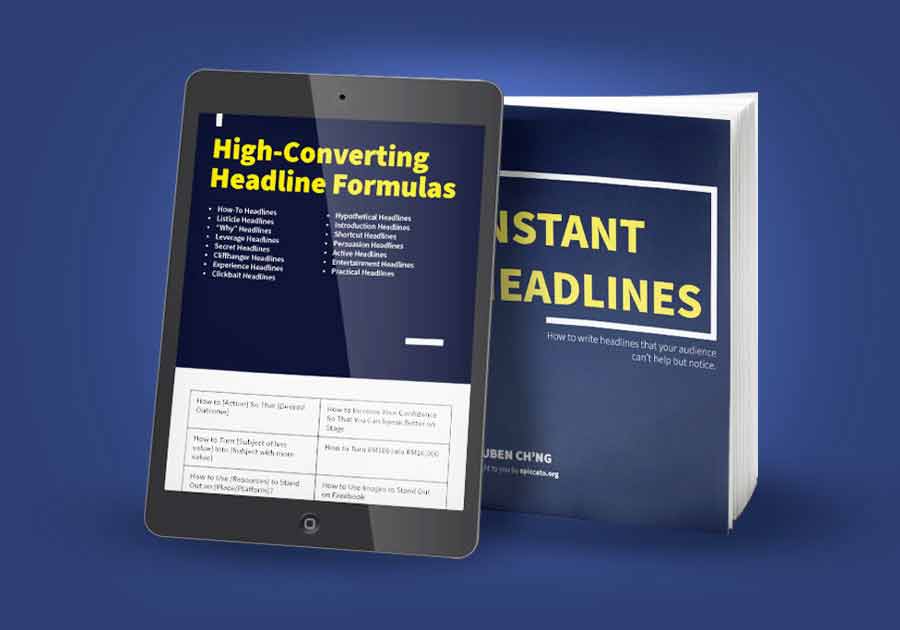Crazy simple headline formula to sell more products.
How we used it to sell over RM800,000 worth of data science courses.

A quick story on how we sold over RM800,000 worth of data science courses.
In 2018 I saw an opportunity in data science, artificial intelligence and machine learning courses. People were scrambling to learn this skill, in fear that they will be replaced by robots.
By chance – that brought me to work on a client's brand, LEAD. I handled marketing, and my client handled the course.
We started out by running webinars and introducing people to data science. Most people who joined the webinars wanted to safeguard their jobs. Some wanted to progress their career quicker. Not many wanted to start a business out of it.
Having a great product was the key factor to helping us sell the course – but beyond that, I learned that our customers read headlines. We had paragraphs and paragraphs of useful content on our website.
But most of them made conclusions through reading headlines.
How did I know this?
Mainly through what they tell me and what I noticed through watching video session recordings of visitors on our website.
We discovered people wanted to learn to code with Python. OK. So we made sure to have a header mentioning Python.
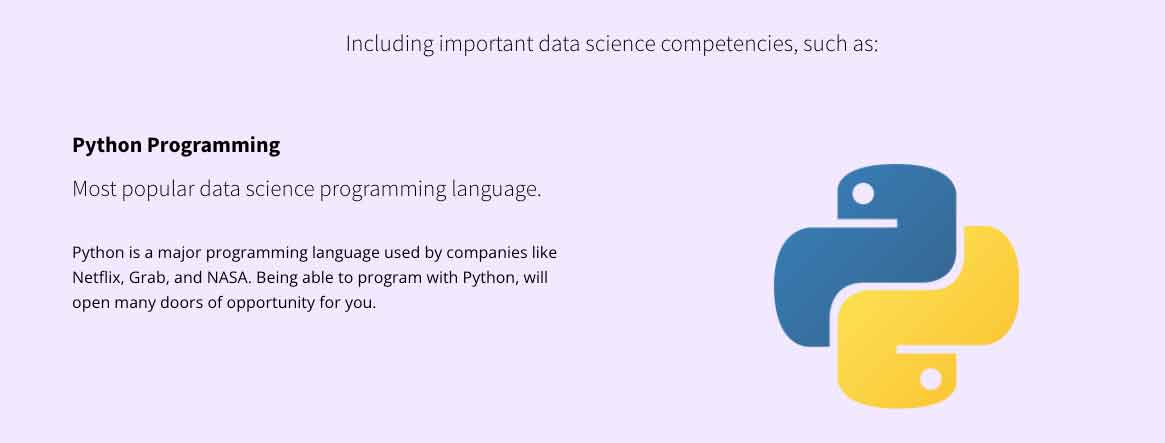
We also discovered people were afraid of data science because they were not coders. OK. Another header addressing that.

And it worked.
Other programs in the market were marketing, 'Immersive Data Science Programs', whatever that might be.
We were marketing upfront benefits – according to what our customers want.
Takeaway: People read headlines and make judgement about your product. They skimp around your website, looking for what they want to see – and not what you want them to see.
The 4 'U's to Writing Headlines That Sell
Your headlines don't have to be complex – whether on a landing page, product page, email or ad.
What I found to be useful when writing headlines is to reference the 4Us headline formula. Here's what it stands for:
- Useful
- Unique
- Urgent
- Ultra-specific
Let's break them down.
1. Useful
Nobody clicks on anything that does not promise them value.
A sure-way to find a girlfriend? OK, sign me up. 3 secrets to ask for a higher salary? Show it to me now!
Also why do people resonate with negative news and gossip? That's because they feel better about themselves, when they read about other people's downfall.
Different people find value in different things.
Here's an example:
How to lose 5KGs of belly fat in 5 months, even if you love eating.
By presenting the immediate benefit, your audience will be enticed to follow-through.
2. Unique
For your headlines to stand out - it has to be unique.
Just do an online search. You'll probably find dozens of other content that are disturbingly similar to yours.
So, how do you write unique headlines?
Let's say you want to write an introductory blog article about coding with Javascript. Do a search on Google, for example: "How to code in Javascript"
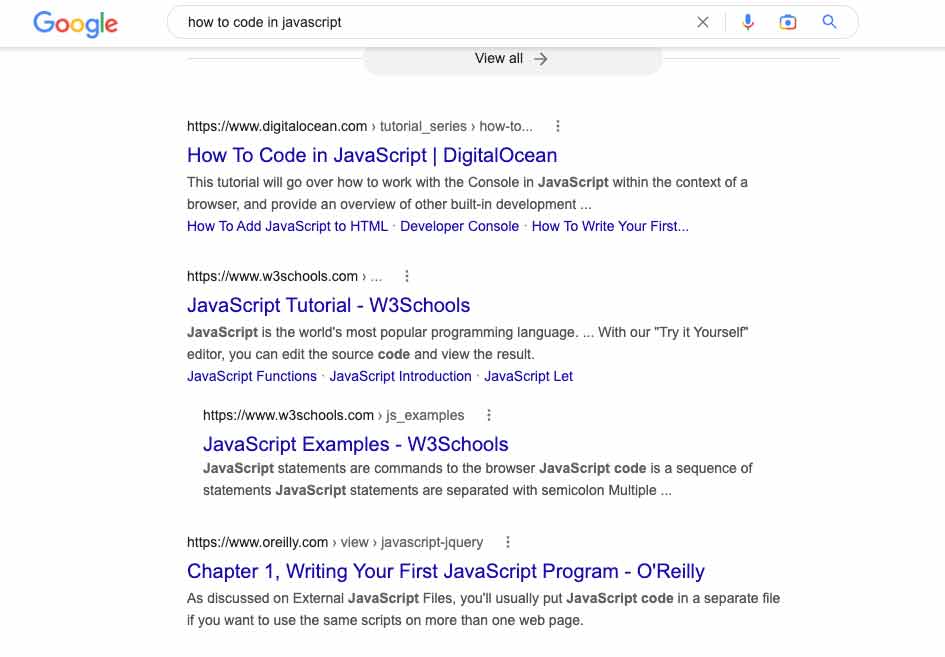
Notice the common themes of headlines that show up. Now, let's use the zig-zagging strategy appear unique.
Writing your first Javascript program - O'Reilly
How about we supercharge that by putting a time-frame to it? So that becomes something like:
Write your first Javascript program in 2 hours.
What about addressing some of the problems that our customers might have? If you recall, I mentioned above that one of the biggest problems people had was they lack confidence due to the lack of not having a technical background.
Let's try again:
Write your first Javascript program in 2 hours, even if you've not don't any coding before.
Not the best headline - but already much better and unique.
On writing truly unique headlines.
The only way to write truly unique headlines that resonates with your customers, is to use the exact words they use.
You get this from surveys, chat messages and contact forms.
Here's an example from a chat during a webinar session:
Student: What I know now is data analytics (Python, R, Programming). Everything is digitalized & I hope I am able to transform my career from another field to here.
Notice the words he used? Here's what I picked up: "transform my career"
See how we used that as the headline:
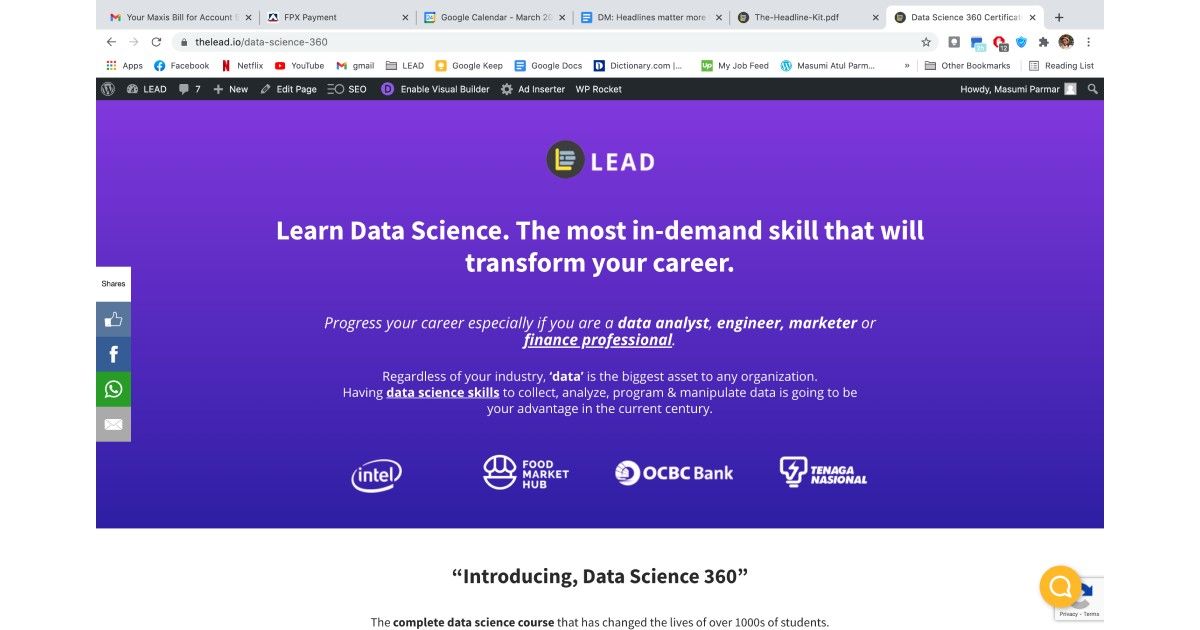
3. Ultra-specific
Who is it for?
Many people tend to write generally, because they want their work to appeal to as many people as possible.
With headlines, you have to get ultra-specific.
A headlines that is so specific towards someone will pique their interest and desire to wanting to know more. In fact, the best headlines are the ones that tell you what to expect.
Here's a good example:
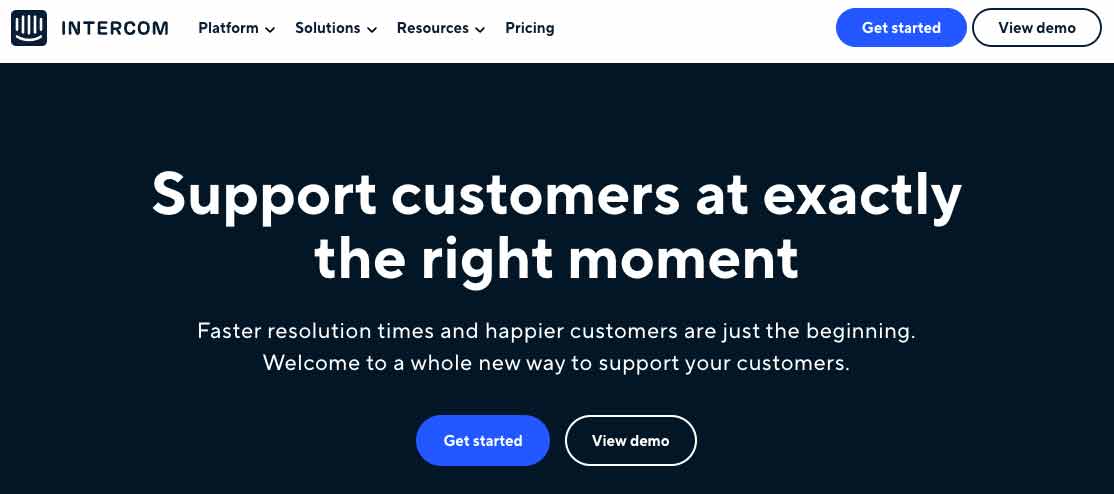
Intercom (a chat software) doesn't beat around the bush, explaining how great their chat software and who they are. Instead, they are ultra-specific to tell the main benefit "support customers" of using their software.
4. Urgency
As I've mentioned in the lessons we learnt running a conference, your customers will not take action – if there's no need for them to do so, right now.
So in writing headlines, ask this question:
Why should your customer spend the few seconds they have now to engage with your content or offer?
A way to include some urgency in headlines is to make bold statements and use a time-sensitive word.
Some examples:
• Time limit: In 30 days, Within a Week
• Specific time-frame: Today, Tomorrow, On your Birthday
• Time constraint: Now, Soon, By Tonight.
Urgency can also be created with scarcity and peer pressure. Which headline would you click?:
- 47% Off Our Bestselling Bicycle
(No scarcity or peer pressure) - 1 Day Only – 47% Off Our Bestselling Bicycle, Loved by 3,872 customers
(Scarcity & peer pressure)
Conclusion
Writing headlines to get your product noticed is part science and part art. Copywriting formulas and frameworks can help. But ultimately, it comes down to talking to your customers and then using the very words & language that resonates with them.
If you want to improve your copywriting and write headlines that will help you sell, check out Instant Headlines. The guidebook is a shortcut that will help you write high-conversion headlines in minutes, instead of hours.
